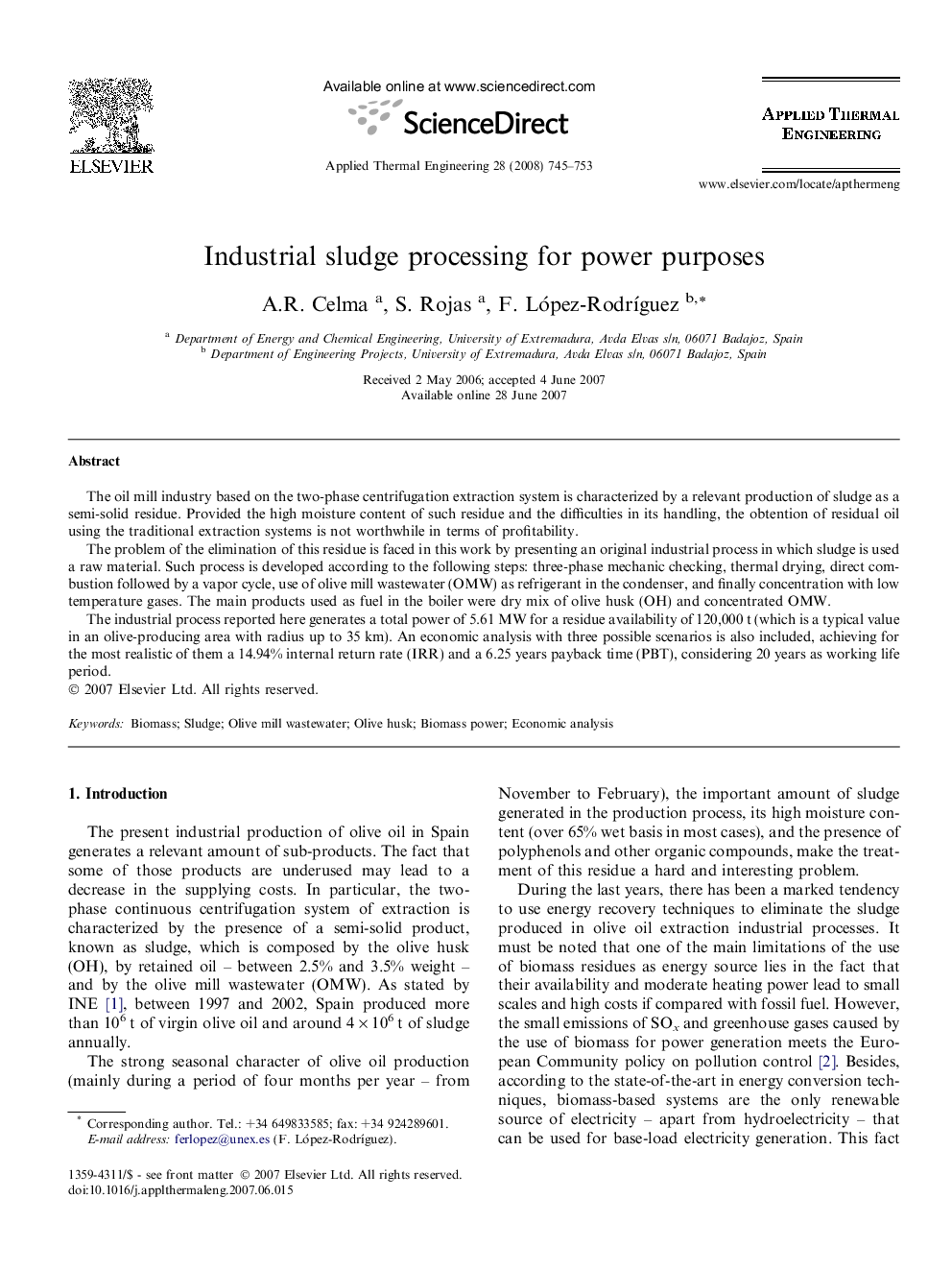| Article ID | Journal | Published Year | Pages | File Type |
|---|---|---|---|---|
| 649466 | Applied Thermal Engineering | 2008 | 9 Pages |
The oil mill industry based on the two-phase centrifugation extraction system is characterized by a relevant production of sludge as a semi-solid residue. Provided the high moisture content of such residue and the difficulties in its handling, the obtention of residual oil using the traditional extraction systems is not worthwhile in terms of profitability.The problem of the elimination of this residue is faced in this work by presenting an original industrial process in which sludge is used a raw material. Such process is developed according to the following steps: three-phase mechanic checking, thermal drying, direct combustion followed by a vapor cycle, use of olive mill wastewater (OMW) as refrigerant in the condenser, and finally concentration with low temperature gases. The main products used as fuel in the boiler were dry mix of olive husk (OH) and concentrated OMW.The industrial process reported here generates a total power of 5.61 MW for a residue availability of 120,000 t (which is a typical value in an olive-producing area with radius up to 35 km). An economic analysis with three possible scenarios is also included, achieving for the most realistic of them a 14.94% internal return rate (IRR) and a 6.25 years payback time (PBT), considering 20 years as working life period.
